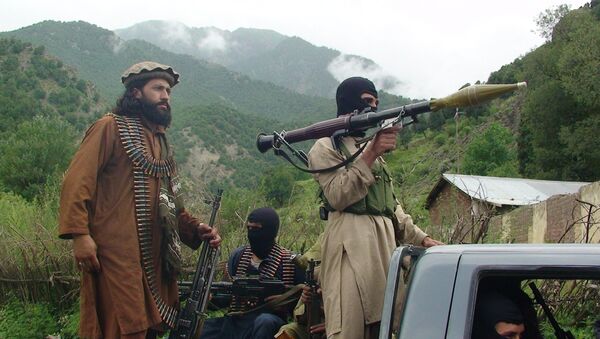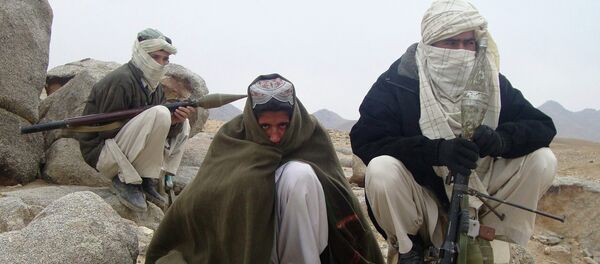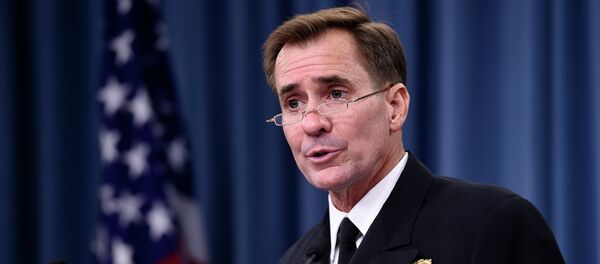Afghan President Ashraf Ghani has been making efforts to engage the political opposition in the country, particularly the Taliban, in negotiations on the settlement of the ongoing confrontation.
"There are at least 20 insurgent groups operating in Afghanistan under the 'Taliban' brand. I doubt more than half of them would obey orders any longer from [Taliban leader] Mullah Omar and the Quetta Shura [militant group]," Professor of National Security Affairs at the US Army War College, Chris Mason, told Sputnik.
Mason was responding to news that members of the Afghan Taliban reportedly said they were scheduled to hold direct talks with US officials in Qatar on Thursday, although spokespersons from both the US State Department and the National Security Council (NSC) denied that such discussions were on the calendar.
"Peripheral figures could be seeking specific Taliban agenda items, like the release of certain prisoners, and the Quetta Shura leadership thinks they can make fools of the Americans again as they did with the Private Bergdahl trade," Mason explained.
The Taliban, according to Mason, might be attempting to convince the US Office of the Special Representative to Afghanistan and Pakistan that there is a roadmap to peace talks, in order to achieve more specific concessions.
Kamran Bokhari, a Middle East and South Asian Affairs analyst for Stratfor, a global intelligence firm, told Sputnik that US officials are concerned that the people they are talking to from the Taliban may not control most of the factions. US leaders are wondering if all the fighters will actually obey the Taliban negotiators and leaders once they agree to end hostilities.
"Mullah Omar traded operational leadership for physical security and therefore he doesn't directly control the commanders on the battlefield. That creates a lot of autonomy for a lot of these people," Bokhari said. "And now he is trying to bring all these guys under one roof and under his strict command, but that's a work-in-progress, to say the least."
Shuja Nawaz, a distinguished fellow for the Atlantic Council, told Sputnik that the Afghan president will also be pressing the Taliban to see if the interlocutors he is working with can guarantee compliance.
"What he [Ghani] doesn't want to do is to have an agreement, then have to negotiate separate side deals with a whole bunch of autonomous characters," Nawaz said.
In 2012, a Taliban commission opened an office in the Qatari capital of Doha, which received authorization from Taliban leader Mullah Omar to start talks with US and Afghan officials.
The Taliban is a militant group founded in the 1990s that seeks to establish sharia law in Afghanistan and Pakistan. The group is known to have carried out multiple terror attacks against authorities and civilians in both countries.
In 2014, the Taliban stepped up insurgent activities across Afghanistan amid the withdrawal of international troops from the country. The United States officially ended combat operations in Afghanistan at the end of 2014, but has kept a residual force of approximately 10,000 troops in the region.




